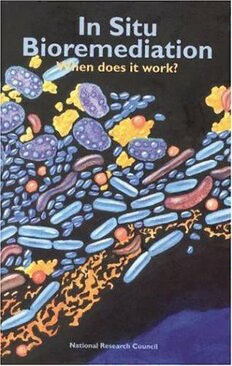
In Situ Bioremediation: When Does It Work? PDF
225 Pages·1993·2.702 MB·English
Most books are stored in the elastic cloud where traffic is expensive. For this reason, we have a limit on daily download.
Preview In Situ Bioremediation: When Does It Work?
Description:
In situ bioremediation-the use of microorganisms for on-site removal of contaminants-is potentially cheaper, faster, and safer than conventional cleanup methods. But in situ bioremediation is also clouded in uncertainty, controversy, and mistrust. This volume from the National Research Council provides direction for decisionmakers and offers detailed and readable explanations of: the processes involved in in situ bioremediation, circumstances in which it is best used, and methods of measurement, field testing, and modeling to evaluate the results of bioremediation projects. Bioremediation experts representing academic research, field practice, regulation, and industry provide accessible information and case examples; they explore how in situ bioremediation works, how it has developed since its first commercial use in 1972, and what research and education efforts are recommended for the future. The volume includes a series of perspective papers. The book will be immediately useful to policymakers, regulators, bioremediation practitioners and purchasers, environmental groups, concerned citizens, faculty, and students.
See more
The list of books you might like
Most books are stored in the elastic cloud where traffic is expensive. For this reason, we have a limit on daily download.
